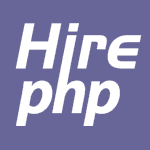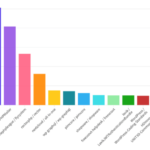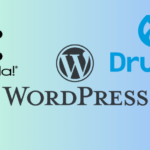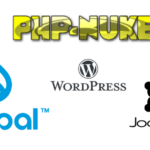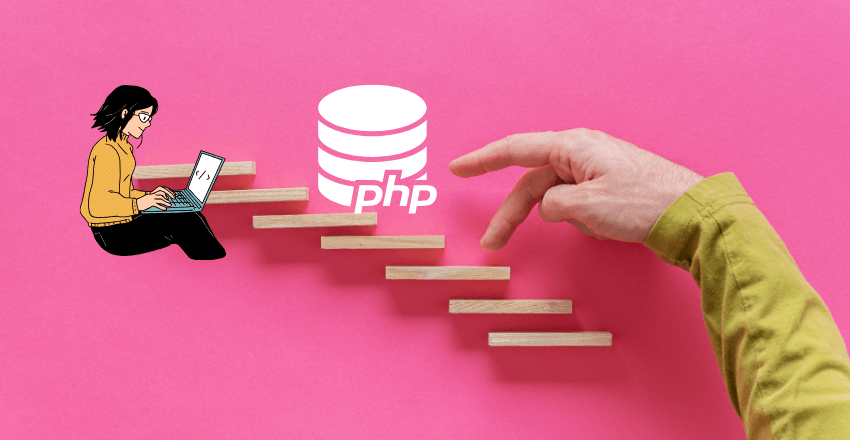
PHP programming skills are in high demand in today’s digital landscape, creating numerous career opportunities for those interested in starting as an entry level PHP developer. If you’re wondering about the journey to becoming a PHP programmer, it’s crucial to understand the role of a junior PHP coder in the industry.
Starting as an entry level PHP developer can offer numerous benefits, including the potential for upward growth and career advancement in the field of entry level PHP coding career.
The Basics of PHP Programming
PHP programming is a popular choice for developers seeking a language with a wide range of applications. Understanding the basics of PHP programming is essential for anyone looking to pursue a career in web development.
PHP programming basics include variables, data types, loops, conditionals, and functions. Each of these concepts helps build a strong foundation for PHP development. Variables allow developers to store and manipulate data, while data types describe the different types of data that can be used in PHP. Loops and conditionals are necessary for controlling the flow of a program, while functions can be used to create reusable blocks of code.
It’s important to note that while these concepts may seem straightforward, they can be complex when combined. A solid understanding of each individual concept is necessary to build more intricate PHP applications.
The Importance of Learning PHP Programming
The demand for PHP developers is high, making it a rewarding career choice. According to Glassdoor, the national average salary for an entry-level PHP developer is $64,000 per year, with experienced developers earning upwards of $100,000.
Learning PHP programming is also beneficial for those looking to enter other areas of web development, such as full-stack development. PHP is often used in conjunction with other languages, making it versatile for a range of web development projects.
Moreover, the PHP community is vast and supportive, with an abundance of resources available for new and experienced developers.
Getting Started with Learning PHP Programming
There are numerous resources available for learning PHP programming. Online tutorials, PHP documentation, and online courses are all great options for those looking to learn the language. It’s important to find resources that are up-to-date and provide clear and concise instruction.
One of the best ways to learn PHP programming is by practicing and building personal projects. This allows developers to apply what they’ve learned in a real-world setting and gain practical experience.
In addition, finding a PHP development environment that suits your needs is crucial. Whether it’s through a local server or a cloud-based platform, having a reliable environment that allows for quick and efficient testing is essential for effective PHP development.
Overall, learning PHP programming basics is the first step in becoming a successful PHP developer. With a solid foundation, developers can navigate the various complexities of the language and create effective and efficient web applications.
Learning PHP: Essential Resources and Tools
If you’re looking to start your journey to becoming an entry level PHP developer, there are plenty of resources and tools available to help you learn. Whether you prefer online tutorials, documentation, online courses, or PHP development environments, there’s something out there for everyone. Here are some of the best PHP learning resources and tools to get you started:
Online Tutorials
One of the best ways to learn PHP is through online tutorials. There are countless websites that offer free or paid tutorials on various aspects of PHP programming. Some popular options include W3Schools, Codecademy, and Udemy. These tutorials offer a step-by-step approach to learning PHP, making it easy for beginners to understand and apply the concepts.
Documentation
Another great resource for learning PHP is the documentation provided by the official PHP website. The documentation covers everything from the basic syntax and structure of PHP to more advanced topics such as object-oriented programming and database interaction. The documentation is well-organized and easy to navigate, making it a valuable resource for beginners and experienced PHP developers alike.
Online Courses
Online courses are another popular option for learning PHP. Websites such as Coursera, edX, and Lynda offer courses taught by industry experts and professors. These courses range in price and duration, but many offer a certificate of completion upon finishing the course. Online courses are a great way to gain a more in-depth understanding of PHP programming.
PHP Development Environments
Using a PHP development environment can greatly enhance your learning experience. These environments provide a comprehensive platform for coding, debugging, and testing PHP applications. Some popular options include XAMPP, WAMP, and MAMP. These environments are free and easy to set up, making it possible to start coding PHP applications right away.
By utilizing these PHP learning resources and tools, you can effectively learn the basics of PHP programming and advance your skills as an entry level PHP developer.
Building a Strong Foundation: PHP Frameworks and Libraries
As an entry level PHP developer, building a strong foundation is essential to succeed in this field. In addition to learning the basics of PHP programming, it is important to become familiar with popular PHP frameworks and libraries.
PHP Frameworks
PHP frameworks provide a structured environment for developing web applications and make it easier to manage complex code. Some of the most popular PHP frameworks include Laravel, Symfony, and CodeIgniter.
| Framework | Description |
|---|---|
| Laravel | A powerful and flexible framework that emphasizes elegant syntax and development simplicity. |
| Symfony | A robust and scalable framework that provides a set of reusable components and libraries. |
| CodeIgniter | A lightweight and user-friendly framework that offers exceptional performance and speed. |
With so many frameworks to choose from, it’s important to research and experiment with different options to find the right fit for your needs.
PHP Libraries
PHP libraries are pre-built sets of code that can be used to enhance the functionality of your web applications. Some popular PHP libraries include:
- PHPUnit: A unit testing library used to ensure software quality
- Twig: A templating engine that makes it easy to generate dynamic HTML
- Guzzle: A powerful library for making HTTP requests and managing APIs
Using libraries can save time and make development more efficient, but it’s important to read through documentation and make sure they are compatible with your chosen framework.
Gaining Practical Experience: Personal Projects and Open Source Contributions
As an entry level PHP developer, gaining practical experience is essential to building your skills and creating a portfolio that showcases your talent. One of the best ways to gain practical experience is by working on personal coding projects and contributing to open source projects.
Personal projects allow you to experiment and work on projects that interest you. You can work on small projects to learn new skills or tackle a larger project to gain experience in a specific area of PHP development. For example, you could build a simple e-commerce website or create a web application that uses a specific PHP framework.
Open source contributions allow you to work on projects with other developers and make improvements to existing code. Contributing to open source projects can also help you build a network of professional contacts and gain exposure for your work. There are many open source PHP projects available on platforms such as GitHub that you can contribute to and learn from.
When working on personal projects or contributing to open source projects, it’s important to document your work and showcase it in your portfolio. This allows potential employers or clients to see your skills in action and understand the types of projects you’re capable of completing.
Networking and Building a Professional Profile
As an entry level PHP developer, building a strong professional network and profile is crucial for success. Networking allows you to connect with other professionals in the field, gain valuable insights, and open up opportunities for collaboration and mentorship. Meanwhile, building a polished and impressive profile showcases your skills, experience, and potential to prospective employers and clients.
One effective way to network as a PHP developer is to attend industry events such as PHP programming conferences, hackathons, and meetups. These events provide an opportunity to meet other developers and industry experts, learn about the latest trends, and exchange ideas and best practices. Online communities such as Reddit’s /r/PHP subreddit, PHP forums, and code repositories like GitHub are also excellent resources for building connections and staying up-to-date with industry news.
Another effective way to build your professional profile is through social media platforms such as LinkedIn and Twitter. LinkedIn is especially valuable as it allows you to highlight your skills, experience, and education in a structured and professional manner. You can also join relevant LinkedIn groups to connect with other developers and engage in discussions. Twitter can also be useful for following industry leaders, sharing your own insights, and building your personal brand.
Remember, networking and building a professional profile is an ongoing process that requires effort and dedication. By putting in the time and energy to connect with others in the field and showcase your skills and experience, you can establish yourself as a respected and sought-after PHP developer.
Landing Your First Job: Resume, Portfolio, and Interview Tips
As an entry level PHP developer, landing your first job can seem daunting, but with the right tools and preparation, you can make a strong first impression on potential employers. Here are some tips to help you create a standout resume and portfolio, as well as ace your job interview.
Resume Tips
Your resume is your first opportunity to showcase your PHP development skills to potential employers. Here are some tips to make your resume stand out:
- Include a clear objective statement that highlights your interest in an entry level PHP developer position.
- Highlight your skills and experience in PHP programming, including any relevant coursework or personal projects.
- Showcase your proficiency in other web development technologies, such as HTML, CSS, and JavaScript.
- Use action verbs to describe your achievements, such as “developed” or “implemented.”
- Customize your resume for each job application, tailoring your skills and experience to match the job requirements.
Portfolio Tips
Your portfolio is a great way to showcase your PHP development skills and provide examples of your work to potential employers. Here are some tips for building a strong portfolio:
- Include examples of your PHP coding projects, along with descriptions of the project goals, your role, and the technologies used.
- Highlight your problem-solving skills by including examples of how you overcame development challenges.
- Showcase your proficiency in other web development technologies by including examples of your work in HTML, CSS, and JavaScript.
- Include a link to your GitHub profile or a code sample repository to demonstrate your coding skills.
- Ensure your portfolio is visually appealing and easy to navigate, with a clear description of your skills and experience.
Interview Tips
Job interviews can be nerve-wracking, but with preparation and confidence, you can showcase your PHP development skills and make a strong impression on potential employers. Here are some tips to ace your job interview:
- Research the company and the job requirements beforehand, and prepare answers to common interview questions.
- Highlight your PHP development skills and experience, and provide specific examples of your work.
- Showcase your problem-solving skills by discussing specific challenges you’ve faced in your coding projects and how you overcame them.
- Demonstrate your enthusiasm for the job and industry, and ask thoughtful questions about the company and culture.
- Follow up with a thank-you email or handwritten note after the interview to express your appreciation for the opportunity.
With these tips, you can create a standout resume and portfolio, as well as ace your PHP developer job interview. Remember to emphasize your skills, experience, and passion for PHP development, and you’ll be on your way to landing your first job in no time!
Continuous Learning and Growth in PHP Development
The journey to becoming an entry level PHP developer is just the beginning of a lifelong process of growth and continuous learning. There is always more to learn in this rapidly evolving field, and staying up to date with the latest trends and technologies is crucial for career growth.
One of the most important ways to continue learning as a PHP developer is to attend workshops, conferences, and other industry events. These events provide valuable opportunities to network with other professionals in the field and to learn from experts who are pushing the boundaries of PHP development.
Another way to continue growing as a PHP developer is to pursue advanced certifications. There are many certification programs available that can help developers deepen their expertise in specific areas of PHP development, such as security or e-commerce.
Finally, it is essential for PHP developers to stay up to date with the latest industry trends and best practices. Following industry leaders on social media and subscribing to relevant blogs and publications can help developers stay in the know and stay ahead of the curve.
Remember, the key to success in PHP development is to approach every day as an opportunity to learn and grow. By committing to continuous learning and professional development, you can build a long and fulfilling career in this exciting and dynamic field.
Advancing Your PHP Career: Senior Roles and Specializations
As you gain experience and expertise as an entry level PHP developer, you may begin to consider your long-term career options within the field. There are various ways to advance your PHP career, whether it’s through obtaining senior developer roles or specializing in a particular area of PHP development.
Senior PHP Developer Roles
One potential career path is advancing to a senior PHP developer role. Senior developers are responsible for leading development projects, mentoring junior developers, and ensuring high-quality code standards. To qualify for a senior role, you will need to demonstrate technical proficiency along with strong communication and leadership skills.
To position yourself for a senior role, focus on gaining experience with more complex PHP development tasks, such as back-end architecture and database design. You should also develop your soft skills by collaborating with team members and taking on leadership opportunities when available.
PHP Specializations
Another way to advance your PHP career is by specializing in a specific area of PHP development. Specializations can range from e-commerce development to web application security, and can help set you apart from other generalist developers. Becoming a specialist can increase your value in the job market and bring higher salary opportunities.
To specialize in a particular area, consider obtaining relevant certifications or taking courses specific to that field. Additionally, seek out opportunities to work on projects that align with your desired specialization.
Overall, advancing your PHP career requires a combination of ongoing learning, practical experience, and strategic career planning. By continuously improving your skills and exploring new opportunities, you can achieve your career goals and thrive as a PHP developer.
Final Thoughts and Next Steps – Entry Level PHP Developer
Congratulations on taking the first steps towards becoming an entry level PHP developer! By now, you should have a good understanding of the basics of PHP programming, as well as the essential resources and tools available to help you learn and grow.
Remember, as you continue your journey in PHP development, it’s essential to keep building on your knowledge and experience. You can do this by continually practicing your skills, taking on personal projects, and contributing to open source software.
Continued Learning and Growth
One of the keys to success in PHP development is staying up-to-date with the latest trends and technologies. Consider attending conferences, taking advanced courses, and pursuing industry certifications to continue growing in your career.
Advancing Your Career
As you gain experience and expertise in PHP development, you may want to consider advancing to senior developer roles or pursuing specializations within the field. There are many different paths you can take in PHP development, so don’t be afraid to explore your options and find what works best for you.
Overall, becoming an entry level PHP developer is an exciting journey with many opportunities for growth and success. Keep learning, practicing, and networking, and you’ll be well on your way to achieving your goals in PHP development. Good luck!
FAQs – Entry Level PHP Developer
1. What is an Entry Level PHP Developer?
An entry level PHP developer is someone who is just starting their career in PHP development, typically with less experience but a strong foundational knowledge of PHP.
2. What skills should an Entry Level PHP Developer possess?
An entry level developer should have a good grasp of PHP basics, understanding of databases, and familiarity with web server technologies.
3. How do companies typically assess Entry Level PHP Developers?
Companies often assess entry level developers through coding tests, interviews focusing on foundational knowledge, and sometimes, portfolio reviews.
4. What kind of projects can an Entry Level PHP Developer handle?
Entry level developers are best suited for smaller projects, bug fixes, and tasks under supervision, gradually taking on more complex assignments as they gain experience.
5. How can an Entry Level PHP Developer advance in their career?
Continuous learning, seeking mentorship, working on diverse projects, and staying updated with the latest PHP trends can propel their career forward.
Michael is an accomplished technical author renowned for his expertise in scientific computer science. With a distinguished career as a development manager at Yahoo, Walmart, and FedEx, he has demonstrated exceptional leadership and technical acumen in delivering successful projects.
With an unwavering interest in PHP development, Michael has been at the forefront of this powerful programming language for the past 22 years. His passion for PHP has driven him to explore its vast potential and harness its capabilities to create innovative and scalable web solutions. Michael’s expertise in PHP development encompasses various frameworks, libraries, and best practices, making him a trusted authority in the field.
